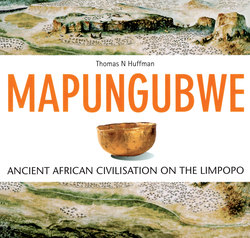Читать книгу Mapungubwe - Thomas Huffmann - Страница 7
На сайте Литреса книга снята с продажи.
ОглавлениеINTRODUCTION
Between AD 900 and 1300, a period known as the Middle Iron Age, African people in the Shashe-Limpopo basin developed the first complex society in southern Africa. Characterised by sacred leadership and distinct social classes, this society also created the first town, the first king, the first stonewalled palace and the capital of the first state. Because of these firsts, the Mapungubwe Cultural Landscape (also known as the Mapungubwe National Park) has become one of South Africa’s World Heritage listings. This international status recognises the importance of Mapungubwe to the African past.
The World Heritage area is a remarkable example of a prehistoric cultural landscape, as recent settlement has not disturbed the most important sites. Indeed, each of the three capitals represents a separate slice of time – first Schroda (AD 900–1000), then K2 (1000–1220) and finally Mapungubwe itself (1220–1300). Furthermore, many ordinary homesteads have not been disturbed, except by natural forces, since the time they were abandoned. As a result, archaeologists have been able to reconstruct the changing uses of the landscape during the rise of Mapungubwe.
Mapungubwe was the forerunner of the famous town of Great Zimbabwe, another World Heritage site about 200 kilometres away. Indeed, without the earlier events and developments in the Shashe-Limpopo basin, Great Zimbabwe would not have existed. By the 15th century, the type of society developed at Mapungubwe had spread over an area the size of France.
What is more, essentially the same type of society lives on today in Venda, although a direct genetic link does not exist. Mapungubwe people are gone, but the culture is by no means dead.
Because of this cultural connection to Great Zimbabwe and then the Venda people, it is possible to use historical and traditional evidence to understand the evolution of Mapungubwe. The story begins over 1000 years ago and involves the wildlife and geography of the area, as well as its people.
